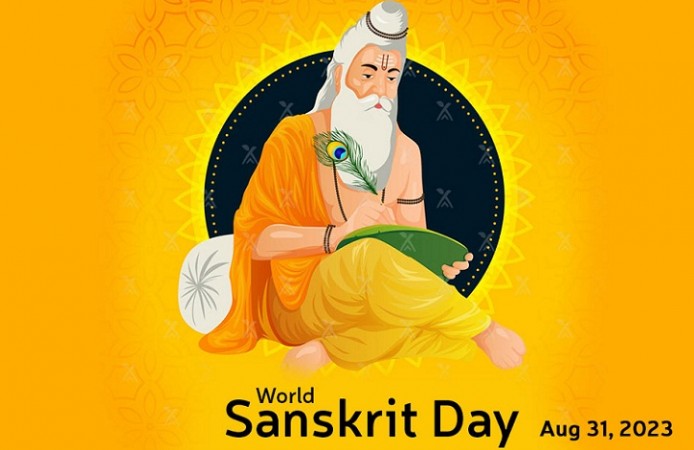
Celebrating the Rich Heritage of Sanskrit: World Sanskrit Day 2023: On August 31, the world will once again celebrate World Sanskrit Day, a commemoration of the ancient Indo-Aryan language that holds within its folds a remarkable literary, cultural, and religious heritage. Sanskrit, often referred to as the mother of languages, continues to captivate scholars, linguists, and enthusiasts alike, reminding us of its enduring significance.
Sanskrit, a language that originated in the Indian subcontinent, boasts a history that spans thousands of years. As the root of many modern Indian languages, it serves as a crucial bridge connecting the past with the present. It is through Sanskrit that numerous religious texts, epic poems, scientific treatises, and philosophical works have been preserved. Its nuanced grammar and intricate structure have made it a treasure trove for linguists and language enthusiasts, demonstrating the sophistication of ancient Indian civilization.
In the contemporary world, however, Sanskrit's prominence has waned. With the rapid globalization and the emergence of new languages and technologies, the study of Sanskrit has often taken a backseat. Yet, World Sanskrit Day stands as a reminder of the language's timeless worth. This occasion serves as a platform to rekindle interest in Sanskrit, to remind us of its invaluable contributions, and to raise awareness about its ongoing relevance.
Sanskrit teachers and enthusiasts worldwide take center stage on this day, organizing events, seminars, and workshops that underscore the importance of Sanskrit in our lives. They eloquently deliver speeches that highlight the language's role in shaping culture, philosophy, and literature. These efforts aim to dispel the misconceptions surrounding Sanskrit and its perceived difficulty, urging individuals to embrace its beauty and depth.
In recent years, a positive change has been witnessed as more people are recognizing the benefits of learning Sanskrit. Proficiency in Sanskrit not only grants access to a wealth of ancient knowledge but also equips individuals with a deeper understanding of linguistic concepts and structures. The precise grammar of Sanskrit has the potential to refine one's language skills, even in other languages. This realization has led to a resurgence in interest, with students and scholars choosing to study Sanskrit as a means of personal and intellectual enrichment.
World Sanskrit Day, also known as Sanskrit Diwas or Viswa Samskrita Dinam, is celebrated on Shraavana Poornima, the full moon day in the month of Shravana in the Hindu calendar. This annual event is a testament to the language's enduring legacy. Beyond the festivities, it serves as a reminder to preserve and protect this linguistic treasure.
The global celebration of Sanskrit Diwas has yielded significant results. In Uttarakhand, India, Sanskrit was declared the second official language, solidifying its position in the modern world. The immense vocabulary of Sanskrit, totaling around 102 billion 78 crore 50 lakh words, showcases the depth and breadth of human expression that this language can encompass.
This Day in History: Pop Sensation Michael Jackson Born
This Day That Year: The Battle of Pallilore - Hyder Ali's Triumph over British